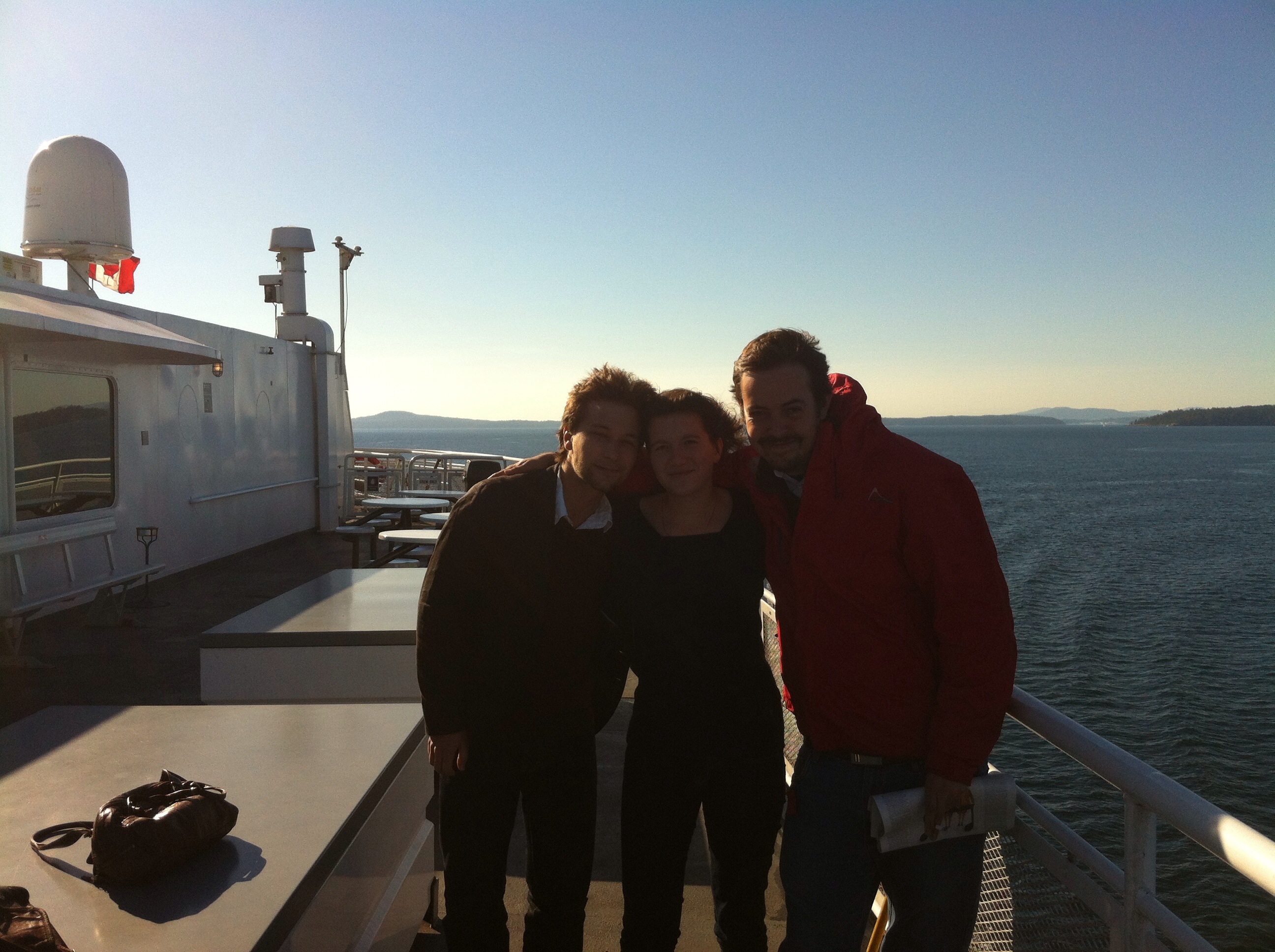At the beginning of this month I was lucky enough to go on a national speaking tour with Gabriel Nadeau-Dubois and Cloé Zawadzki-Turcotte from CLASSE. We called it the Maple Tour, and had the intention of sharing the lessons of Quebec’s successful social movement, and building strong connections with activists in other parts of the country.
For us, the tour was successful beyond our wildest dreams. We spoke to large crowds in London, Toronto, Saskatoon, Regina, Winnipeg and Victoria, before closing the tour in Vancouver in front of a standing room only crowd at the W2 Media Café.
The most incredible part was the people we met. In every city we were greeted with incredible love and hospitality. To understand how many good people populate this country, fighting to make it better, was an incredibly affirming experience for us all. You might say it recharged our activist batteries, and filled us with a renewed commitment to struggle for social justice.
If we can have had even a fraction of the impact on the people we met that they did on us, then our mission was most certainly accomplished.
For me, having spent the past weeks in B.C., observing their building movement against pipelines, tankers and the tar sands known as Defend Our Coast, and now having arrived in Ottawa for Powershift 2012, which I expect to be the most important meeting of progressive minds this country has seen in years, it is easier than ever to believe that we are building something truly special. A national movement, from coast to coast, of Canadians who are “mad as hell, and not going to take it anymore!”
There is no more salient point to take away from this year’s events in Quebec than the old saw, “don’t let them tell you it can’t be done!” As Mark Twain wrote, “They didn’t know it was impossible, so they did it.”
The message Gabriel and Cloe brought to activists across the country was that the Quebec strike was not a product of Quebec exceptionalism. Instead, it was built slowly over the course of two years, through hard work and democratic structures.
As they explained, when organizing began in 2010, less than fifteen percent of students in Quebec were even opposed to the tuition hikes, let alone prepared to go on strike. A dedicated core group of activists campaigned relentlessly, slowly building support until the movement eventually grew to the hundreds of thousands we saw in the streets this spring and summer.
But no amount of hard work would have been able to spark this movement if it were not for the structures of direct democracy which are at the heart of Quebec’s student movement. As Gabriel said, it would have been inconceivable for students to go on strike, and stay on strike for six months with all the attendant risks if they had not felt ownership of the decision, one which they voted on each week in their general assemblies.
If there is one clear lesson from Quebec for students in the rest of the country, it is the critical importance of direct democracy and general assemblies. As Gabriel said, social movements are not like peanut butter, they can’t simply be spread uniformly across a country. But if students build democratic structures on their own campuses, they will allow the development of their own movements, rooted in their own concerns.
My compatriots focused heavily on the importance of a clear and achievable demand to galvanize a social movement, but also the importance of rooting that demand in a broader analysis so that the momentum of the movement does not dissipate once the goal is achieved. In Quebec, the goal was clear and ever-present: Ensemble, bloquons la hausse (Together, block the hike). But CLASSE were equally clear in placing that demand in the context of a larger struggle against austerity and neo-liberalism.
Another point they made repeatedly, and which we would all do well to take to heart, is the importance of understanding the limitations of social media. Social media are terrific for distributing information quickly among the already converted, the location of a demonstration for instance, and were tremendously useful in maintaining a high level of mobilization once the strike started. However, no one will be converted to a political position in one hundred and forty characters. Don’t forget that for the most part, you’re preaching to the choir on social media.
For me, the greatest significance of the Maple Spring is its historic nature. It is likely the most significant defeat which the neo-liberal austerity agenda has yet suffered. As such I hope that it will provide inspiration to movements in other parts of the world, and that it can be the first pebble rolling down the hill, which triggers an avalanche.
In Quebec, we are well aware of the importance of historical victories to inspire people. When sceptics asked, why bother with a strike, we can’t possibly win, activists were able to point to a history of victories and explain that a strike could succeed now, as they had in the past.
I hope that Quebec can be that history of victory for those fighting austerity from B.C. to Barcelona, from Chile to London, England. When sceptics ask why bother, we can’t hope to win, point them to Quebec. Our struggle is an emphatic monument to the power of ordinary people when they work together.
A full video of the Vancouver tour stop is available here.
We would like to thank our amazing national partners for making this tour possible. The Communications, Energy and Paperworkers Union, the Canadian Auto Workers Union and LeadNow.ca, we couldn’t have done it without you! Thanks also to our many local organizers, who pulled off fabulous events on short notice, and our many local sponsors.



